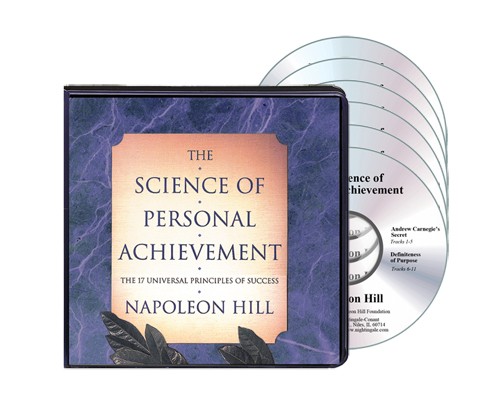This isn’t a book; rather it’s an audio collection of recordings of Napoleon Hill talking about his science of personal achievement. Hill was the author of Think and Grow Rich, which arguably ignited the field of “self-help” books.
More so than the content of the course, what’s remarkable to me is the story of how it came to be. Hill was born a dirt-poor hillbilly in West Virginia, but ended up an advisor to presidents. His break came when he interviewed the great Andrew Carnegie for his college newspaper.
Carnegie arrived in the US as a penniless teenager, and soon became fatherless. Yet he ended up as the richest man in the world – one of the richest in all history. When Carnegie met Hill, he regaled him with his idea that men like him didn’t get rich by luck; there was a system that could be used by anyone. Carnegie felt that his greatest bequest to mankind would be to get someone to elucidate and popularize this system, so that anyone could get rich. He thought Hill was the man to do it.
Carnegie knew everyone; in today’s parlance, he had access. He offered to give Hill letters of introduction to the 500 most famous, successful people in the world. This included Thomas Edison, Henry Ford, Woolworth, Stone, presidents, bankers, scientists – all the movers and shakers of the early 20th century. In return, Hill had to promise to work on the project for at least 20 years (Carnegie felt it would take about that long), and, incredibly, to not receive a dime from Carnegie.
It seems incredible. One of the richest men in history, hiring someone to work on what he hoped would be his greatest legacy, but refusing to pay??? In retrospect, Carnegie knew that Hill would only truly understand the method he was researching if he had to apply it. In order to survive, Hill had to constantly test and refine his ideas on his own business his own life. Carnegie was a genius.
In the end, Hill claims he met his goal of surpassing Carnegie. He explains that he never really wanted as much money as Carnegie; he had no use for it. But Carnegie made about 25 men into millionaires (which was a fortune in those days), whereas Hill claims to have made thousands of people into millionaires.
Hill claims that when Carnegie made him the offer, he was secretly timing him with a stopwatch under the desk. If Hill had taken more than 60 seconds to answer, Carnegie would have withdrawn the offier. Hill answered in 31 seconds.
To me the story is absolutely fascinating, and to hear it told in Hill’s homespun no-nonsense style is an absolute joy. An example: he was named Napoleon after his rich uncle Napoleon in Tennessee, in hopes that his flattered uncle would leave money to the family. In fact, Uncle Napoleon completely excluded the W. Virginia Hills from his will. Dr. Hill called this the greatest gift of his life: “Because you know what happened to my relatives who got the money?? Nothing!!!” (He rates as the second-greatest gift the fact that Carnegie refused to pay him).
Even if you don’t cotton to courses on success, this is a fun tape set just for the glimpse at history. I only wish they had told us where and most importantly when the recordings were taken.
